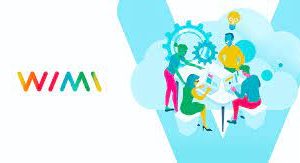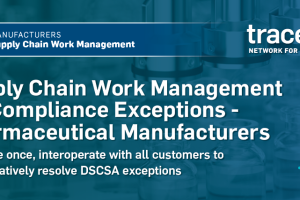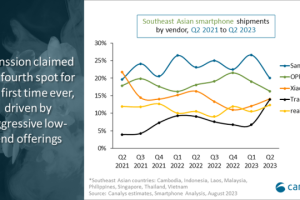Says, Ramaa Sundara Raj, Director & VP Strategy, SmartRx in an interaction with Ekta Srivastava, Health Technology…
Please share with us the journey of SmartRx and Pragna Technologies, till date?
Journey had been really fascinating and included lot of learning. I am an engineer by profession but very passionate about people management and entrepreneurship. That led me to start Pragna Technologies, a service provider company and now fully engaged in RPO services for US market. I stayed in US for 10 years and then moved back. It was interesting to see that awareness of preventive health and care management was very low in India when compared to West. SmartRx was started with the intention to provide best possible care management and telehealth solution for people. I joined the highly versatile team in 2012 and been a part of it since then. It was initially challenging to understand the demographic and mentality of consumer population. Now it is a highly digital world and people are very receptive to it. Met very interesting people during my journey and happy the way we are growing month on month and year by year. We are able to make a difference and bridge the gap between doctors and patients. Happy to be part of such a dynamic team who have developed a wonderful mhealth app for telehealth and care management.
How you see Indian Healthcare Industry today and in next five years?
Consumer driven healthcare is the future and providers need to quickly adapt to these changes to survive and grow. The Indian healthcare market today is worth US$ 100 billion and is expected to grow to US$ 280 billion by 2020. In 5 years 80 percent of health data will pass through the cloud at some point in its lifetime as providers look to more scalable, cost effective, and in many cases, secure hosted infrastructure.
Technology is now getting widely accepted in healthcare industry and mobile health is another segment which people are adapting to. Numerous medical apps are available which are useful for physicians and patients. They provide valuable information on doctors, Labs, Chemists, hospitals etc. Patients can access, share and update their Electronic Health Record and doctors can view it after obtaining approval from the patient. These apps are of great help to doctors in decision-making, which is in-turn helping the consumers as their health is in informed hands. Preventive, Chronic and Post-op care management tools are available to educate patient and create awareness so they can make informed decisions.
These new technologies have revolutionized the healthcare industry, making it more transparent, patient-centric and convenient.
Do you think that Indian healthcare is ready to get SMAC-ed?
Yes, totally. Already SMAC is the trend. Social Media has opened a new channel of communication. Many healthcare providers are using social media like (Facebook, YouTube, and Twitter etc.) to contact their patients and help improve the relationship. With vast use of smartphones, mobile healthcare (mhealth) solutions have started to play an increasingly important role. Companies like Practo, Lybrate, SmartRx, HealthKart have developed mobile apps for appointment booking, care management, telehealth, ordering medicines online and prescription refills.
Data analytics is the key to understand a patient’s behavior and Pharma companies are using analytics in research and development efforts to more quickly predict drug development outcomes, thus reducing the costly paths to take new drugs to market.
What are the major trends that you have witnessed in mHealth recently?What are the major challenges in initiating these trends?
Telehealth tops the list for me. The ability to communicate with nurses, doctors and specialists from anywhere they have access to a mobile device means super-efficient. It has opened up a whole new way of delivering medical care and advice that’s comparable to any in-person visit.
Wearables that can partner up with an app to deliver real-time data on any condition monitoring and management and helps intervention at the right time is really amazing.
Care Managementvia apps and creating awareness and necessary education in population helps prevent many diseases and makes post op recovery or chronic care management very easy. Medication reminders and prescription refill help patients to take better care of themselves and medicine being delivered at their doorstep
Security and privacy concerns are the major barriers for telehealth. Reliability is another issue where doctor and patient trust comes into picture. Regulations need to be very clear and more transparency on that end is needed for these mhealth trends to grow.
How can technology drive change in national healthcare systems?
Technology can act as a major driving force to build a national repository of medical records (EMR) which can then form a key building block for innovations from – Public health insurance to preventive care offerings and Care Management as well as boost innovations in clinical trials with big data.
Similar to the NHS system in UK, we can build the largest repository of health data which can be leveraged across all providers – Government healthcare, Private hospitals and community workers alike.
Telemedicine especially being available on mobile phones will trigger large scale adoption which helpsmillions of rural population with necessary and urgent care facilities.
How successful are the implementations of technology in healthcare systems?
They have been successful in the past but it will become more strategic and result in faster and more successful implementations going forward. In the past, traditional implementation cycles were slower and technology usage by patients was patchy. Todayadoption of cloud as a viable model will result in faster and more integrated systems. The consumer needs around mobile based services will make technology implementations more successful.
What benefits canconsumers reap out of technology driven healthcare?
Obviously consumers can expect convenience, faster and cheaper care delivery. We have talked about tele-health, home based care and delivery. It will result in better access to care and provides better choice for consumers which typically lowers costs.
What are the major challenges in implementing the technology in healthcare?
The traditional challenges have been (a) Resistance from doctors (b) Business models for new technology (c) Homogeneity of patient population (d) Lack of clarity on regulations.
I think these continue to be the challenges but there also has been progress on all these fronts to address the challenges. For example, homogeneity of the population is much better now with wider adoption of mobile and internet. Business models have evolved to support these technology enabled care evidenced with growth of eCommerce transactions like medicine delivery. Clarity on regulations and wider government push will definitely help.




























